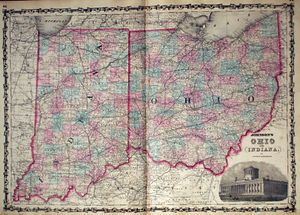 While recent state Baptist meetings South and North have been marked with excitement about the war, emotions in Baptist homes often evidence less exuberance and more concern. Many southern and northern families, already anxious regarding loved ones serving on distant battlefields, are beginning to realize the war will not end soon.
While recent state Baptist meetings South and North have been marked with excitement about the war, emotions in Baptist homes often evidence less exuberance and more concern. Many southern and northern families, already anxious regarding loved ones serving on distant battlefields, are beginning to realize the war will not end soon.
Depression and mental illnesses, while not uncommon, are often spoken of in hushed undertones and are not yet fully understood. The harshness of mid-19th century life, a time in which many children do not survive to adulthood and life expectancy is short, is at times difficult enough to bear apart from the personal burdens of war.
Ministers of the gospel, more so than others, are often looked upon with high expectations in their personal lives. As such, stories of troubled pastors make news headlines in instances where the same troubles visited upon others might never be printed for public consumption. Today’s Richmond Daily Dispatch carries a story about a northern minister who took his own life:
Elder Stephens, a Baptist preacher, of the close communion order, whose home was in Chester, Geauda county, Ohio, committed suicide on Monday week by cutting his throat with a razor. He has had spells of derangement for a year or two past, but continued to preach. He preached on the Sunday preceding his death and gave out his text for the next Sabbath–‘”Behold how great a fire a little matter kindled.”’
The reason for Elder Stephen’s suicide is not noted. The reference to “derangement” may well be exaggerated, an extension of widespread southern resentment of northern clergy (many, and perhaps most, of whom vocally support the Union in the Civil War). Perhaps war pressures upon his family contributed to the taking of his life, as will increasingly be the case in instances of depression and mental illness on the home front as the war drags on in the years ahead.
Source: Richmond Daily Dispatch, November 22, 1861 (link)


